Four decades have passed since the 23-F coup attempt in Spain that took place on the 23rd of February 1981, yet it remains a symbolic turning point engraved in Spanish collective memory. A member of the ‘24/7 Valencia’ team sat down with Joan Oliart i Pons, a Catalan journalist and politician, to discuss his recollections of the events and the extent to which the failed coup augmented democratic ideals and overcame a political impasse. This article investigates the connection between Valencia and the coup d’état, exploring this in relation to the standpoint of a Catalonian and more broadly examining how coups destabilise or strengthen regimes that condition modern political identity.
The death of the dictator, Francisco Franco in 1975, ushered in a period of political and economic turmoil in Spain that has become known as the democratic ‘transition period’. Against this backdrop of political violence and economic crisis, there was a resurgence of extremist politics that posed a threat to the development of democracy, mostly from cliques in the military. On the 23rd of February, Guardia Civil Lieutenant Colonel, Antonio Tejero led an extremist military faction to Madrid, to storm parliament. While the coup d’état was an assault that intended to end Parliamentary Monarchy and deflect democracy, its failure only created further opportunities for political liberalisation and in its wake Spanish democracy was strengthened.
So how does Valencia come into all this? During the coup, Valencia had a number of insurgents. Capitán General, Jaime Milans del Bosch, imposed martial law in the eastern city of Valencia deploying tanks and armed forces onto the streets from the División Maestrazgo. A state of emergency was declared in Valencia and its residents were house bound, leaving the cafes, bars and restaurants deserted. The occupation instilled fear and confusion in civilians who did not support the military mobilisation. The coup failed, following King Juan Carlos’s national address showcasing his devotion and commitment to the democratic cause and Terejo and Bosch were both imprisoned.
Prior to the coup d’état, there was civil unrest brewing in Valencia in 1979 with the issue of autonomy and speculation surrounding the annexing of Valencia to autonomous Catalunya. During the country’s transition to democracy, a certain identity conflict arose as Valencians wished to remain independent. A new article of the constitution was drafted specifically for Valencia making it an autonomy with more independence than some but less than Catalunya and the Basque Country. This period also witnessed the rise of terrorist groups and the continuous attacks and assassinations by the Basque separatist terrorist organisation, Euskadi Ta Askatasuna (ETA). The army was also suffering an ideological divide between the supporters and the opponents of Franco’s dictatorial regime leading to a military reform to democratise the army in 1976. Regional autonomy, military division and an increase in terrorism were all sources of tension that provoked unrest across Spain in the years leading up to the 23-F coup d’état.
Following the coup attempt, at the 1982 Spanish election, the Spanish Socialist Workers’ Party (PSOE) was the leading social democratic party. Joan Oliart i Pons joined the Catalan federation of the PSOE and held the position of propaganda secretary of its Barcelona federation until 1979. He was also Vice-President of the Justice, Law and Public Safety Committee between 1980-1988 and replaced Jordi Maragall Noble as senator for Barcelona constituency in 1976. I had the pleasure of speaking with him to learn about his first-hand experiences during the 1981 coup d’état.
‘24/7 Valencia’: Good morning, Joan. Thank you very much for taking the time to speak with us today to discuss your recollections of the 23-F. Let’s start by asking how far you think the coup consolidated democratic ideals?
Joan Oliart i Pons: Well, I think it was a before and after. There was already a strong public opinion in favour of democracy and that was consolidated with the Parliament in place and with some regional parliaments. However, following the coup d’état there was definitely a feeling of relief and admiration for the institutions we had and for the advancement of democracy.
‘24/7 Valencia’: Could you describe to us a little about the level of repression against citizens or the suffering that was experienced during the coup?
Joan Oliart i Pons: There was a lot of civil unrest during the coup because civilians acted at the hands of third parties. Of course, there was the repression against those locked up in Parliament and it was followed by a military pronouncement by the miltary captain of the region of Valencia who took his tanks onto the streets. At that time, those of us who were aware of the situation feared that there would be a chain of pronouncements by other senior figures. The key was the king. The king was the head of all the armies and therefore, until he spoke, there was no certainty that things would end well. The suffering was in the waiting; we were all waiting; all the citizens were waiting for the king to intervene. The king’s intervention didn’t come until one o’clock in the morning.
But during that time, until the king made his famous speech saying that he was the head of the armies and that everything was fine, and that normality was going to be restored immediately, I think there was a lot of uncertainty, but not only uncertainty, but a lot of uneasiness, especially among people who were already linked to democracy in a, shall we say, direct way.
‘24/7 Valencia’: Do you have any personal anecdotes of the time or a memory that stand out in your mind?
Joan Oliart i Pons: At that time, I was politically responsible for the Barcelona Federation and the first thing we did was to give instructions to all the groups that depended on us all over Barcelona, so that they didn’t move or panic because that would have been counterproductive. On the other hand, I personally sent my family out of the house because I knew what it was like. I knew what happened when there was a military coup. Normally, certain people, who are lieutenants of army captains in the Guardia Civil, go around with lists of people who must be eliminated or locked up. So, these are the most dangerous hours of all. Then they arrest you one at a time. What I was thinking was not to be at home when they came looking for me. And above all not to be with my family. Of course, I sent my family out of the house, and I went to meet with the other political leaders. I had a direct political responsibility in the leadership of the Barcelona representation and there we were gathered in a meeting room when the King’s pronouncement was made and each one of us could return home.
‘24/7 Valencia’: Thanks very much for your time, Joan.
To surmise, the 1981 coup d’état was a failed attempt of re-instating a dictatorship and occurred during the country’s changing political course towards democracy. The event’s significance should never be diminished due to the foundational role it played in Spain’s modern history and the conditioning of contemporary Spanish political identity. The 23rd of February 1981 should be remembered as a date when the transition to democracy was disrupted but ultimately prevailed, creating the nation we all know and love today.
Report by Imogen Hockings
Article copyright ‘24/7 Valencia’
Related Post
This site uses Akismet to reduce spam. Learn how your comment data is processed.


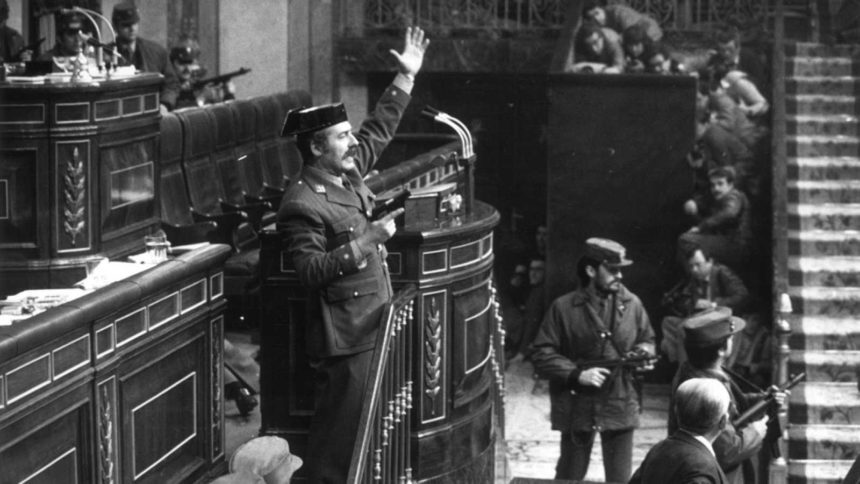
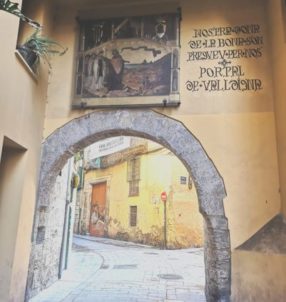
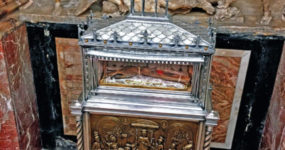

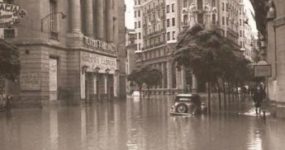
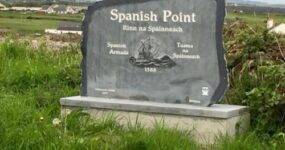


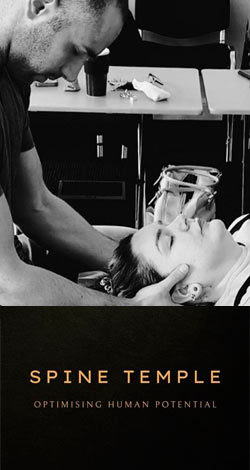















Leave a comment